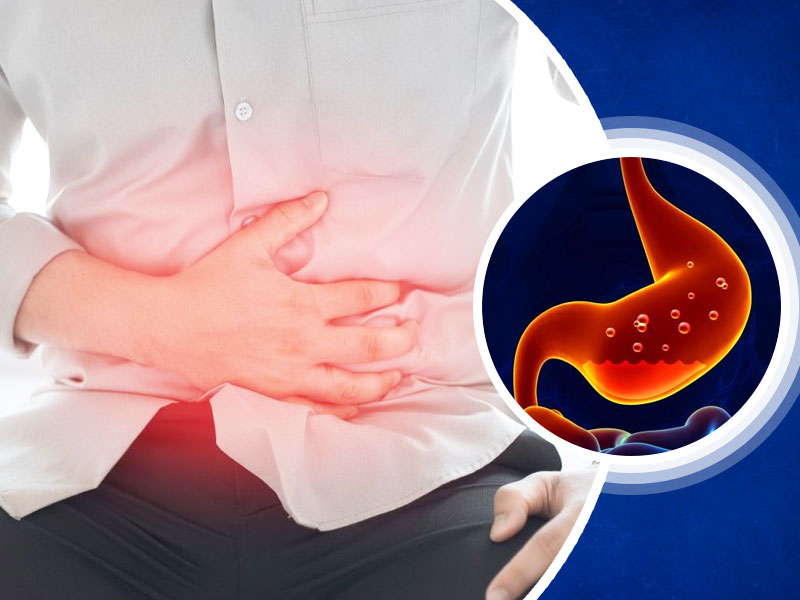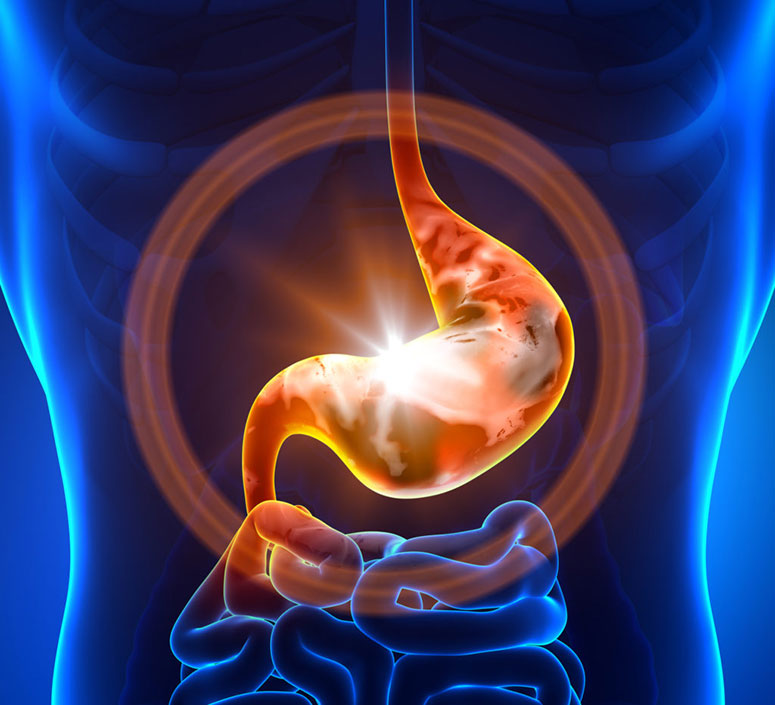CONDITIONS
Gastritis

Gastritis means inflammation of the lining of the stomach. Mild gastritis is quite common and there are a number of potential causes.

What are the symptoms of gastritis?
Mild gastritis often does not cause any significant symptoms. In more troublesome cases it can cause a burning sensation in the top of the abdomen especially after eating. Other symptoms include nausea, belching, a reduced appetite, or feeling too full after eating.
What are the causes of gastritis?
Many factors can result in inflammation of the lining of the stomach. One common cause of gastritis is an infection of the stomach lining with Helicobacter pylori infection.
The use of non-steroidal anti-inflammatory painkillers (NSAIDs) such as ibuprofen, naproxen, diclofenac, or aspirin is another common cause. Other causes include damage from smoking, using excessive amounts of alcohol or regularly eating heavily salted food. Irritation from bile or excess acid may damage the stomach lining. Gastritis may occur because of stress, or a serious illness or injury. Finally, in rare cases, the body’s immune system can attack the stomach lining, leading to autoimmune gastritis.
Are there any complications of gastritis?
Long-term inflammation of the lining of the stomach and gastritis can increase the risk of developing stomach ulcers or even in rare cases stomach cancer. Severe gastritis can cause bleeding into the stomach which could cause anemia, vomiting blood, or passing black tarry stools. In autoimmune gastritis, you may develop problems absorbing Vitamin B12 which can result in anemia, tiredness, or nerve damage.
How is gastritis diagnosed?
Tests for gastritis might include stool tests (to identify hidden traces of blood in the stool or the presence of Helicobacter pylori), a breath test to check for Helicobacter pylori), or a gastroscopy (or endoscopy) test to look inside the stomach.
How is gastritis treated?
If possible, the cause of the gastritis should be identified and removed. So for example Helicobacter pylori should be treated if it is present, and the use of NSAID painkillers, smoking, and excess alcohol should be avoided. Symptoms may be helped by eating smaller portions instead of a big meal and cutting down on known irritants in the diet such as fried, spicy, or acidic foods. Acid-reducing medications such as PPIs or medicines that reduce gastric irritation can also help.

Dr Neil has extensive experience in diagnosing and treating gastritis. You should seek medical advice if symptoms of gastritis or upper abdominal pain that doesn’t go away after at least a week, if the pain is severe, or if you have concerns about the health of your stomach.
